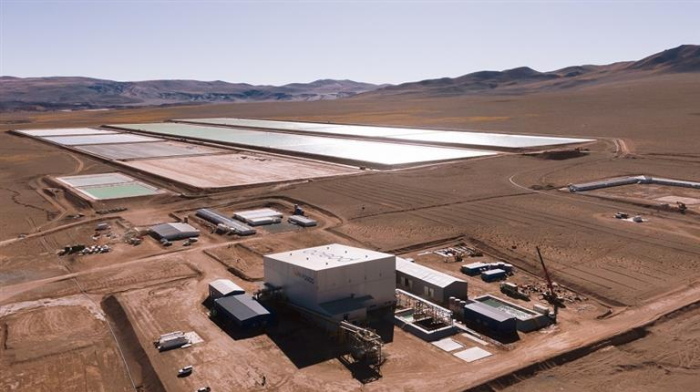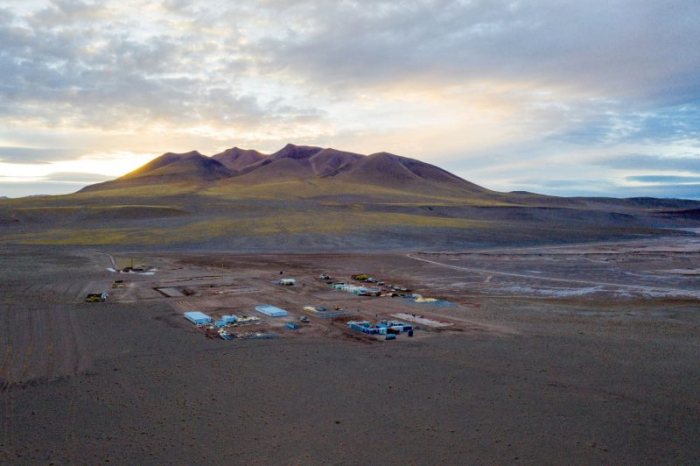POSCO to spend $830 mn to build lithium plant in Argentina
The steelmaker aims to be one of the world's top lithium suppliers by 2030
By Dec 16, 2021 (Gmt+09:00)
Samsung shifts to emergency mode with 6-day work week for executives


CJ CheilJedang to sell feed, livestock unit for $1.4 bn


Samsung Electronics' key M&A man returns; big deals in the offing


Affinity to buy SK Rent-a-Car at $572 mn, more deals expected


Keppel REIT to sell Seoul-based prime office T Tower



South Korea's POSCO Group has earmarked $830 million for spending on a new plant in Argentina to extract lithium hydroxide, a material for electric vehicle batteries, from a salt lake.
POSCO said on Dec. 16 that its board of directors approved of the spending plan, which marked its first massive investment since its announcement last week to transition to a holding company structure.
The construction will begin next year. The plant will come online in 2024 to extract 25,000 tons of lithium hydroxide from the salt lake annually, enough for 600,000 EVs. It plans to double the capacity in the following years.
The spending plan includes the construction cost and initial operating expenses.
Since acquiring the salt lake, POSCO has operated a demonstration plant near the site for more than a year. The 17,500-hectare lake has 13.5 million tons of lithium reserves, which the steel giant said in March has lithium reserves estimated at 35 trillion won.
Additionally, POSCO said last year its study found the Argentine lithium mine could produce 25,000 tons of the material annually for the next 50 years, much longer than its original expectation of 20 years.
┬Ā
Lithium hydroxide is extracted from saltwater or ores and used along with high-nickel cathode material for EV batteries. A battery cell high in nickel content offers longer mileage and shorter charging time than existing batteries.┬Ā

If the lithium extraction plant starts operation, POSCO will become the only company in South Korea to produce lithium from saltwater, ores and used batteries.
In 2018, POSCO invested in Pilbara Minerals, an Australian lithium mining company, to secure 320,000 tons of lithium extracted from ores per year.
At home, POSCO Lithium Solution Co. will build a plant in 2023 to extract lithium hydroxide from ores in Gwangyang, South Korea. POSCO is also building a recycling plant in the country in cooperation with Zhejiang Huayou Cobalt to produce lithium from used batteries.┬Ā
Through the series of investments, POSCO will have 110,000 tons of lithium production capacity by 2025 and then 220,000 tons by 2030.
Simultaneously, the company is preparing to manufacture solid electrolytes, used in all-solid-state batteries, dubbed a next-generation EV battery.
"We will expand our business portfolio not only to lithium-ion batteries but also to all-solid-state batteries," said a POSCO official. "Our goal is to become one of the world's top lithium suppliers by 2030."
Write to Jung-hwan Hwang at jung@hankyung.com
Yeonhee Kim edited this article.
-
 Corporate restructuringPOSCO approves holding company plan for eco-friendly business
Corporate restructuringPOSCO approves holding company plan for eco-friendly businessDec 10, 2021 (Gmt+09:00)
5 Min read -
 Battery materialsPOSCO Chemical, GM to launch new battery material JV in US
Battery materialsPOSCO Chemical, GM to launch new battery material JV in USDec 02, 2021 (Gmt+09:00)
4 Min read -
 EV battery materialsPOSCO's lithium reserves in Argentina soar to $31 bn
EV battery materialsPOSCO's lithium reserves in Argentina soar to $31 bnMar 04, 2021 (Gmt+09:00)
2 Min read


